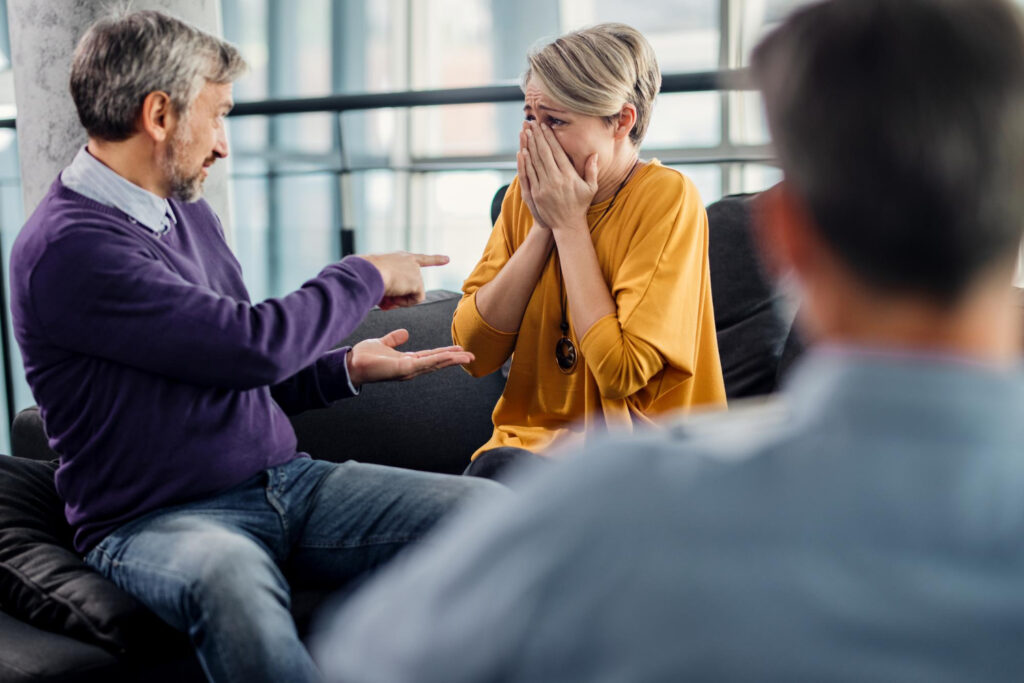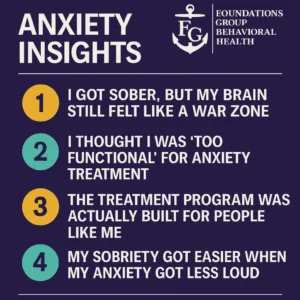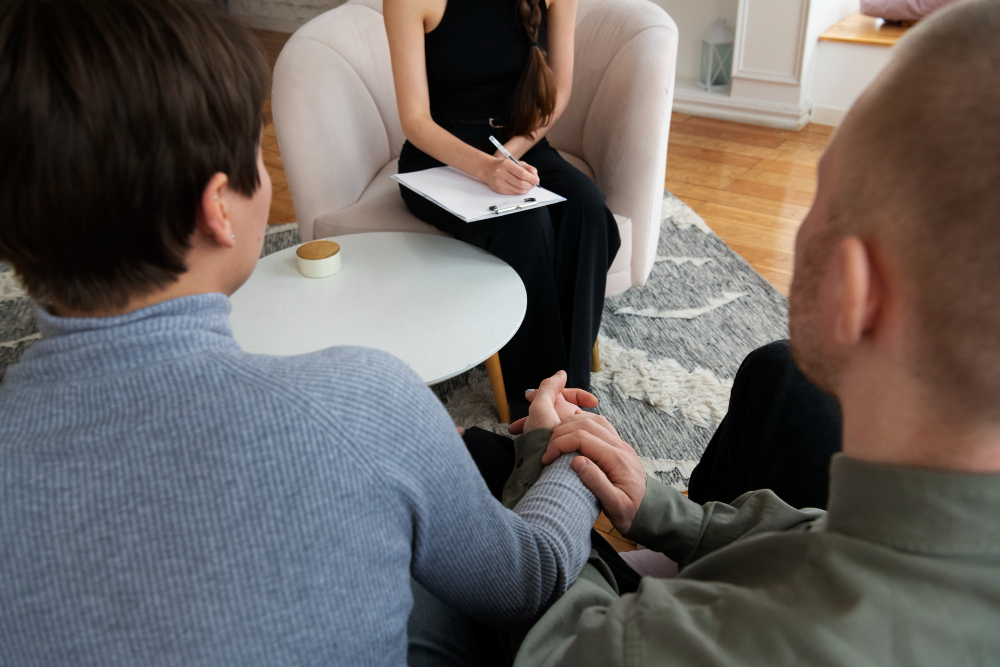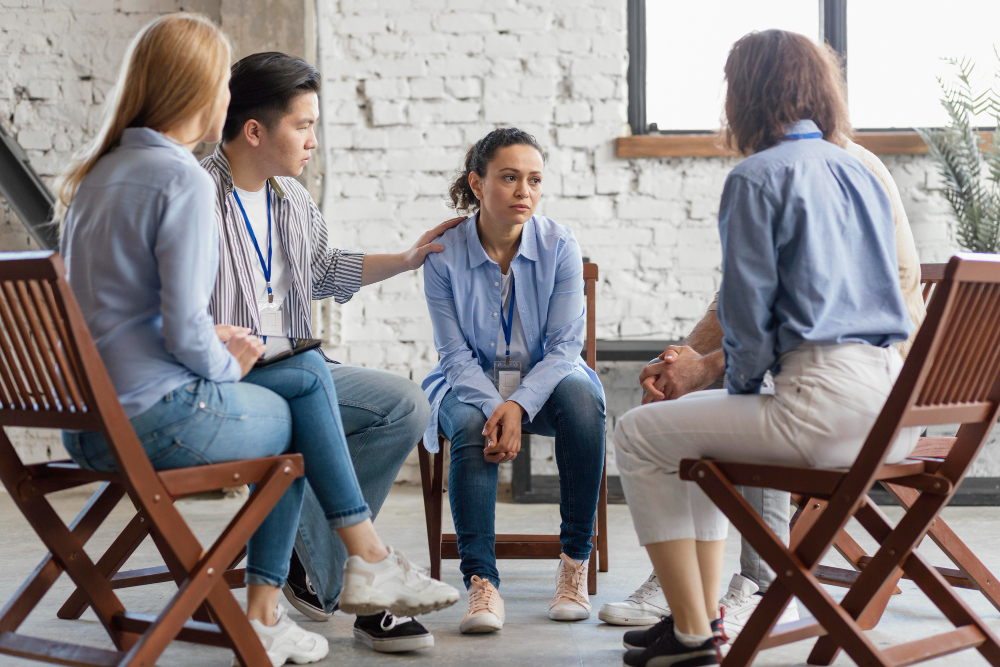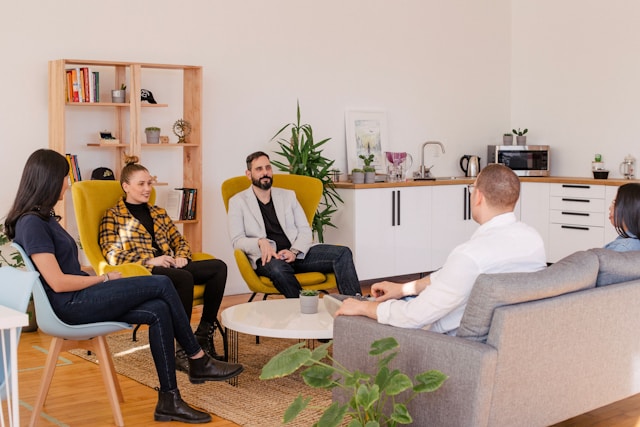I didn’t want more treatment.
I already felt like the “weird one” for being young and sober. Most people my age were swapping hangover cures, not sharing relapse dreams. I was the one drinking seltzer at the bar, leaving early, pretending to laugh when people said, “Just one won’t kill you.”
I was staying sober, technically. But I was also low-key miserable.
When someone suggested I try an anxiety treatment program after I’d already “gotten clean,” my first instinct was offense. Like—wasn’t sobriety enough?
Turns out, it wasn’t.
And I’m not saying that to scare anyone—I’m saying it because no one told me that sobriety doesn’t make your brain less anxious. Sometimes, it makes it more anxious. And that’s what no one warned me about.
1. I Got Sober, But My Brain Still Felt Like a War Zone
I thought quitting substances would mean peace.
But instead, I got silence—and in that silence, my anxiety turned up the volume. Social situations felt sharper. My thoughts got louder. My body never settled.
I thought I was doing something wrong. But really, I was just sober without support for the anxiety I used to self-medicate.
2. I Thought I Was “Too Functional” for Anxiety Treatment
On paper, I was fine. I wasn’t relapsing. I showed up to work. I paid bills. I smiled through brunch with friends.
But inside? My chest hurt constantly. I replayed conversations on a loop. I couldn’t sleep. I either ghosted everyone or clung too tight.
Still, I told myself, “I’m not sick enough for treatment.” As if there’s a magic level of suffering you have to hit before getting help.
Spoiler: You don’t need to fall apart to justify care.
3. The Treatment Program Was Actually Built for People Like Me
What changed everything was realizing Foundations Group didn’t expect me to be a blank slate.
Their anxiety treatment program in Massachusetts wasn’t some generic therapy circle. It was designed for people navigating real stress, real triggers, and real emotions—without trying to erase their personality.
It wasn’t all soft voices and “let’s explore that.” It was learning how the nervous system actually works. What panic really is. Why I freeze or overreact in situations that feel “normal” to other people. And how to interrupt the spiral before it takes over.
4. My Sobriety Got Easier When My Anxiety Got Less Loud
For a while, sobriety felt like an endurance test. I thought about using—not constantly—but often enough that it scared me. I’d white-knuckle through the week and crash on the weekends. Even without drinking, my stress felt toxic.
The anxiety program gave me actual tools. Not just talk.
I learned grounding skills, body-based techniques, ways to reroute the mental loops that made everything feel urgent.
And slowly, the thoughts about using faded—not because I was “stronger,” but because I wasn’t constantly overwhelmed anymore.
5. The Group Made Me Feel Less Alone (Without the Corniness)
I was scared the group part of the program would be awkward. But it turned out to be one of the best parts.
Hearing other people say out loud the exact same thoughts I’d been having in secret? It cracked something open.
“You ever get so anxious you cancel plans you were excited for?”
“Yeah.”
“Same.”
It sounds small. But it made me feel less defective. Less alone. More human.
6. I Still Felt Like Me—Just Less Ruled by Panic
This was my biggest fear—that treatment would make me robotic. That I’d lose my edge, my creativity, my weird humor.
But the opposite happened.
I didn’t lose my vibe. I just stopped being hijacked by it.
I could still be intense, still feel things deeply—but I wasn’t held hostage by every wave of emotion. I could actually enjoy social stuff without analyzing it to death later. I could rest without guilt.
And yeah, sometimes I still get anxious. But now, it’s a speed bump—not a cliff.
7. It Made My Sobriety Sustainable—Not Just Barely Manageable
There’s a big difference between not drinking and living well in recovery.
Before treatment, I was surviving. After treatment, I started actually enjoying being sober.
I started feeling proud—not just obedient. I stopped needing my sobriety to be my whole personality because I actually liked who I was becoming.
That’s the gift no one talks about:
When anxiety stops running the show, sobriety stops feeling like punishment. It starts to feel like freedom.
8. Local Access Made It Less Intimidating
One of the reasons I went was because Foundations Group had programs right here in Barnstable County and Falmouth.
I didn’t need to disappear for 30 days. I didn’t have to explain to my boss. I could keep living my life while finally getting the support I needed to make that life work.
FAQs: For the Young, Sober, and Still Anxious
Can I join an anxiety treatment program if I’m already sober?
Yes. In fact, a lot of people benefit most from anxiety treatment after they get sober—once the nervous system is exposed without substances.
Do I have to be in a full-blown crisis to get accepted?
Nope. You don’t need to be melting down to qualify. If anxiety is interfering with your peace, your relationships, or your recovery—it’s enough.
Will this make me feel like I’m starting all over again?
Not at all. It’s not about “going back” into treatment. It’s about deepening your toolkit so you can stay stable. It builds on your sobriety—not replaces it.
How long does it take?
It depends. Some people do 6–12 weeks. Some go longer. Foundations Group works with you to create a plan that makes sense for your life and needs.
What if I’m not diagnosed with an anxiety disorder?
No formal diagnosis is required to benefit. If anxiety impacts your daily life, that’s reason enough to explore treatment.
Will I be around other sober people?
Not always—but you won’t be alone in your experience. Anxiety programs attract people across all walks of life, many of whom are navigating substance-free living or past treatment.
Sobriety Isn’t Supposed to Feel This Hard
If you’re sober but still drowning in anxiety, you’re not broken—you’re just missing support that actually fits where you are now.
Call 888-685-9730 or visit Foundations’ Anxiety Treatment Program in Massachusetts. Whether you’re newly sober or a few years deep, help is here—and it doesn’t require you to start over. Just to start where you are.

